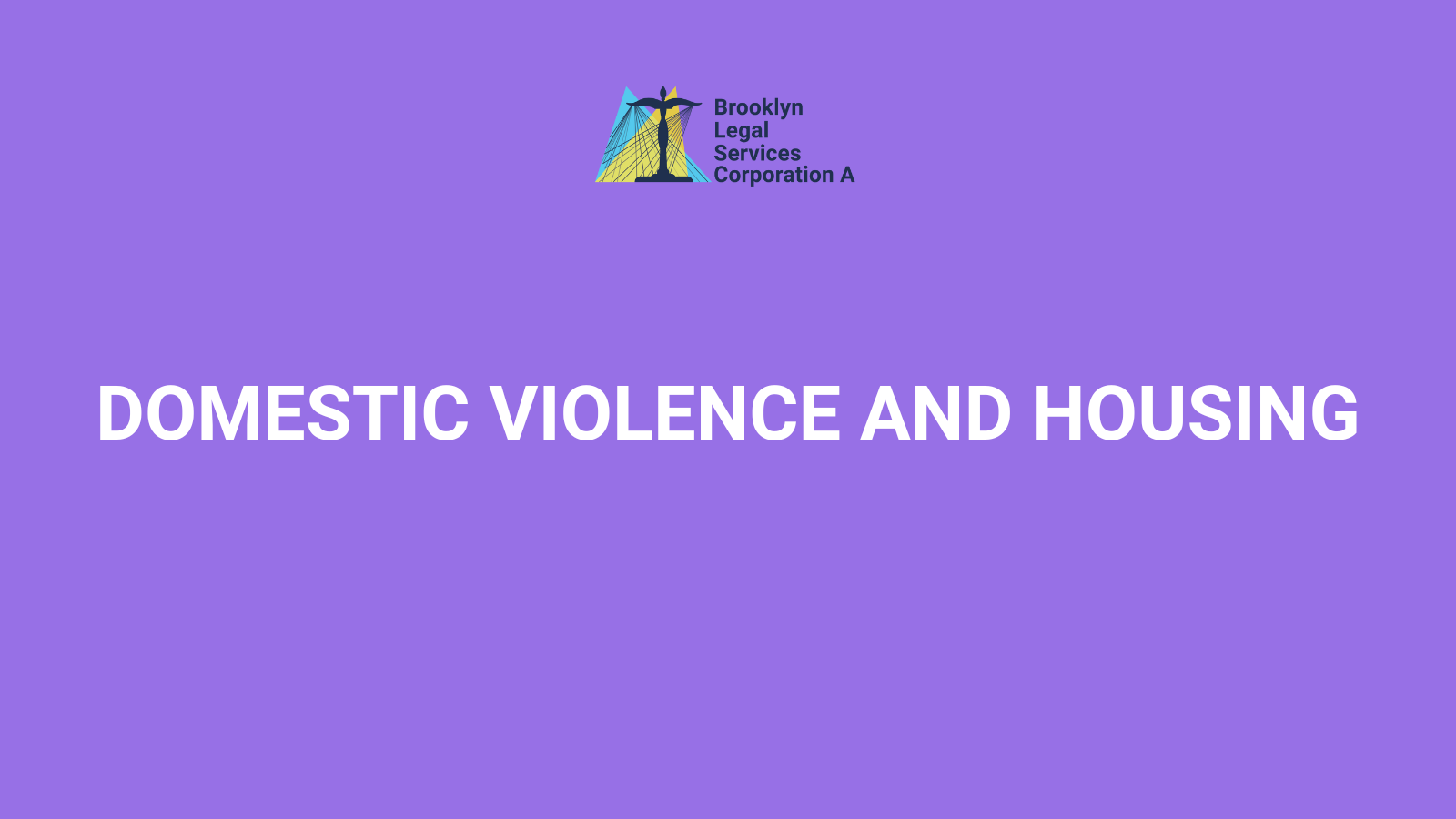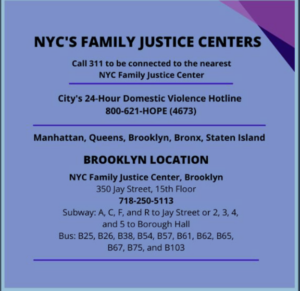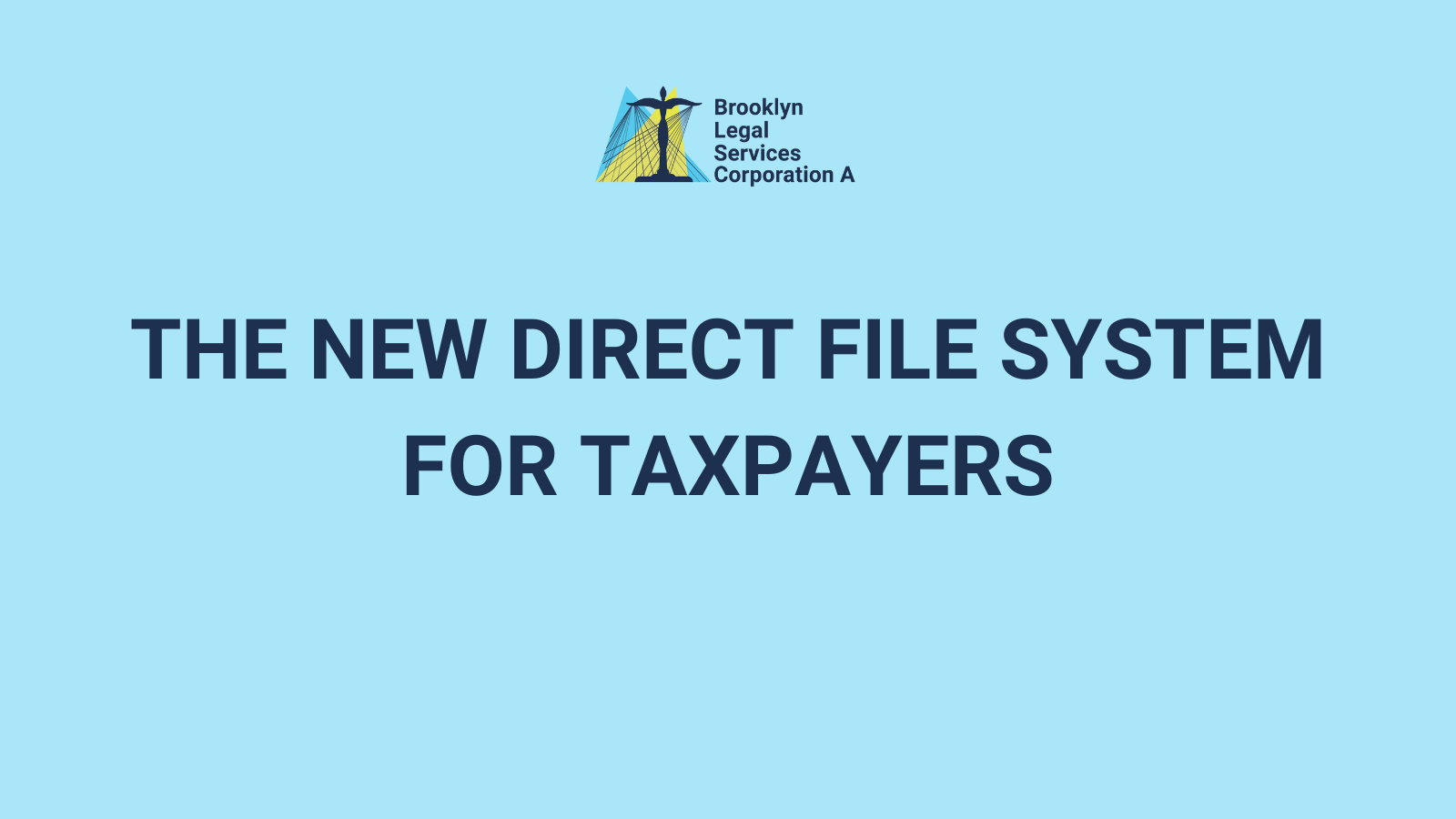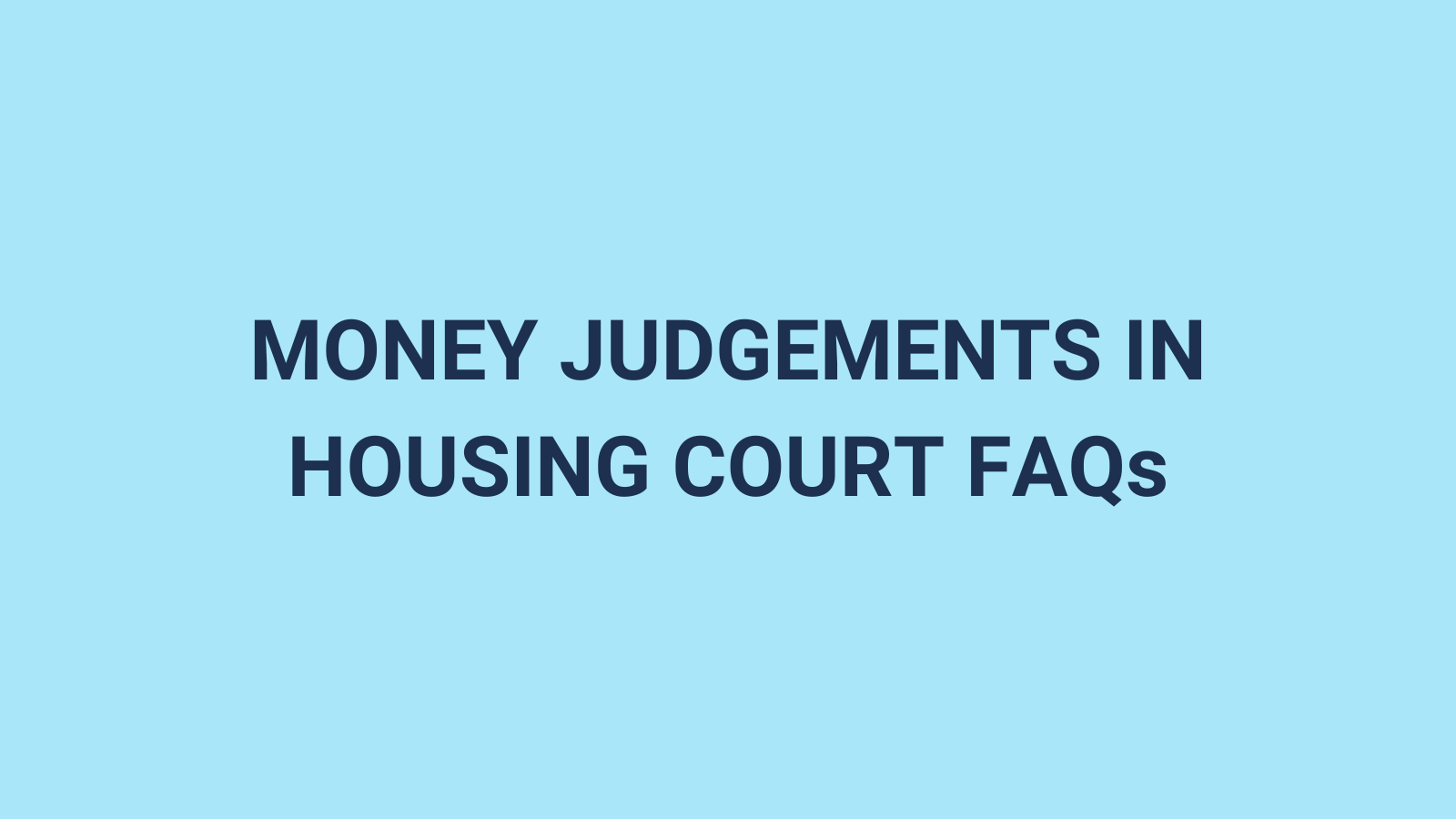By Charles Healy Every year, taxpayers work to have their taxes filed with the IRS…

Domestic Violence and Housing
Housing insecurity is often one of the most pressing issues for survivors of domestic violence. Due to lack of resources and, often, housing discrimination, survivors of domestic violence have a tough time finding appropriate housing and resort to living in domestic violence shelters or homeless shelters. In 2018, domestic violence was the leading cause of homelessness for families entering the NYC shelter system. Between 2020 and 2022 in New York City, about 1,550 families leaving domestic violence shelters were displaced into homeless shelters.
Although violence against women is most commonly reported, it is crucial to acknowledge that crimes against men, children, trans individuals, and non-binary individuals also occur but are frequently underreported. Regardless of your gender identity or sexual orientation, if you are a survivor of domestic violence, it is important to know that you have rights under New York State and city laws.
 Housing discrimination against survivors of domestic violence can include being denied admission to or being evicted from housing due to acts of violence committed against survivors. But, under New York State’s Human Rights Law, it is unlawful to discriminate against someone because that person is a victim of domestic violence (NY Exec L § 296). Under New York State Human Rights Law, landlords may not refuse to sell, rent, or lease housing, or otherwise evict a person, because of status as a domestic violence victim. Further, under the federal Violence Against Women Act, it is illegal for a landlord participating in a federally subsidized housing program, such as Section 8 housing, to deny or terminate voucher assistance based on victim status. Similarly, receivers of certain rental assistance programs are also protected under the law. These laws provide survivors with a defense in eviction proceedings and private right of action.
Housing discrimination against survivors of domestic violence can include being denied admission to or being evicted from housing due to acts of violence committed against survivors. But, under New York State’s Human Rights Law, it is unlawful to discriminate against someone because that person is a victim of domestic violence (NY Exec L § 296). Under New York State Human Rights Law, landlords may not refuse to sell, rent, or lease housing, or otherwise evict a person, because of status as a domestic violence victim. Further, under the federal Violence Against Women Act, it is illegal for a landlord participating in a federally subsidized housing program, such as Section 8 housing, to deny or terminate voucher assistance based on victim status. Similarly, receivers of certain rental assistance programs are also protected under the law. These laws provide survivors with a defense in eviction proceedings and private right of action.
Further, if your landlord is threatening to evict you or to cause you physical harm, interrupting services to your apartment, calling or texting more than it is necessary, calling your workplace, stalking you, entering your apartment without your permission, causing damages to your property, or locking you outside of the apartment, you can initiate claims of harassment in Housing Court.
Other protections for domestic violence survivors include the New York Property Law § 227-C, which allows tenants who fear remaining in the premises due to domestic violence, and who have existing orders of protection, to get the court to terminate their leases, despite their landlord’s refusal.
What can tenants do if their landlord is harassing them?
- Call 311 and report everything your landlord has done and/or said
- Call 911 if locks were changed by your landlord without an eviction
- File an HP Action for harassment in Housing Court
- Call a legal service provider
- Brooklyn A: 718-487-2300; ask for Domestic Violence Unit and/or Preserving Affordable Housing Unit
Landlords cannot discriminate against victims of domestic violence and cannot refuse them housing.
If you are a survivor seeking new housing, housing assistance is available to you:
- City FEHPS – must have one child, resident of shelter, eligible for PA, doesn’t run out as long as funds are available
- HRA Housing Assistance
- Emergency Housing Voucher
- HUD – Housing Link
- New Destiny Housing
- Safe Horizon
- Barrier Free Living
- Family Justice Center (Available in all 5 boroughs)




